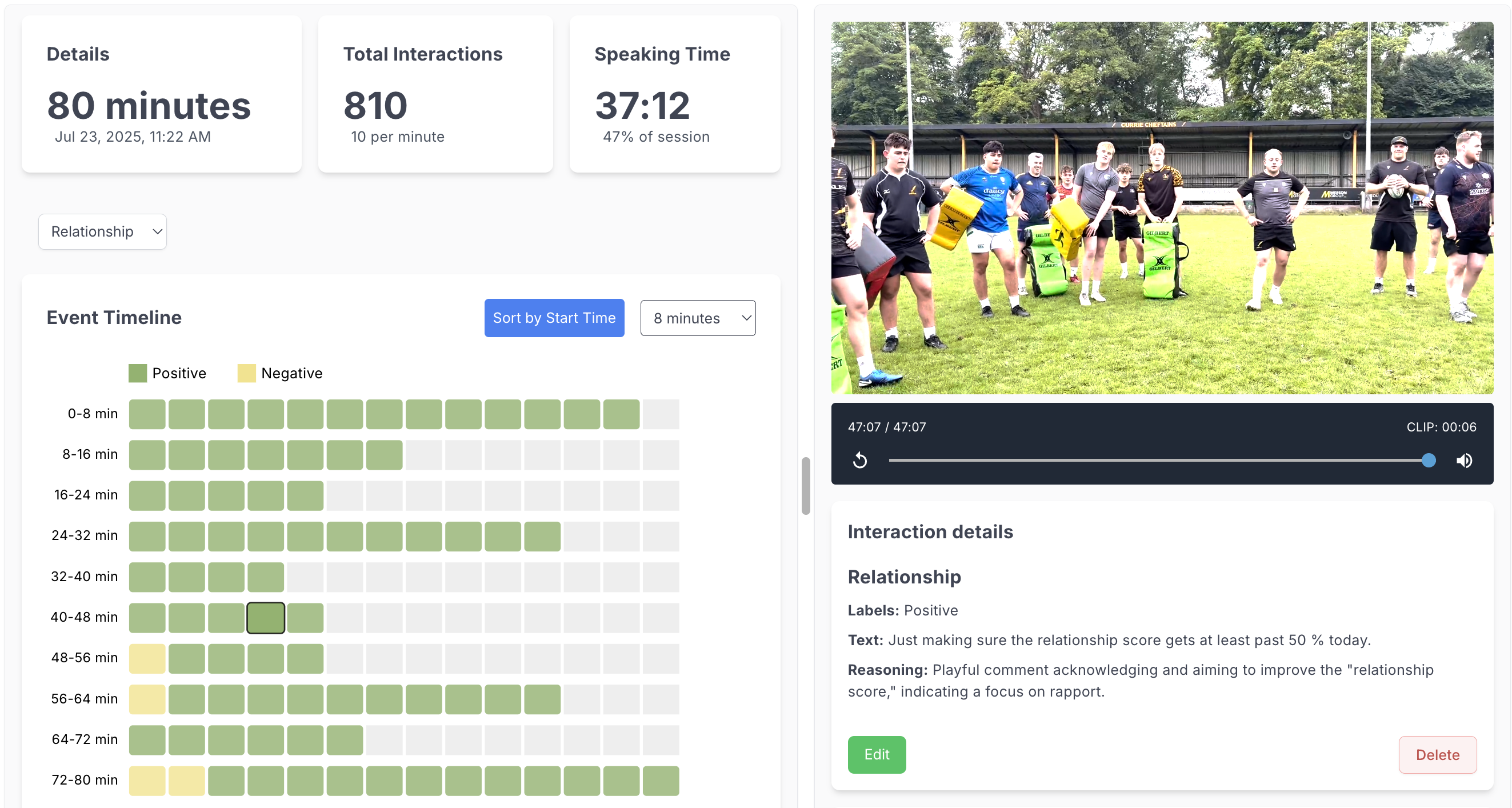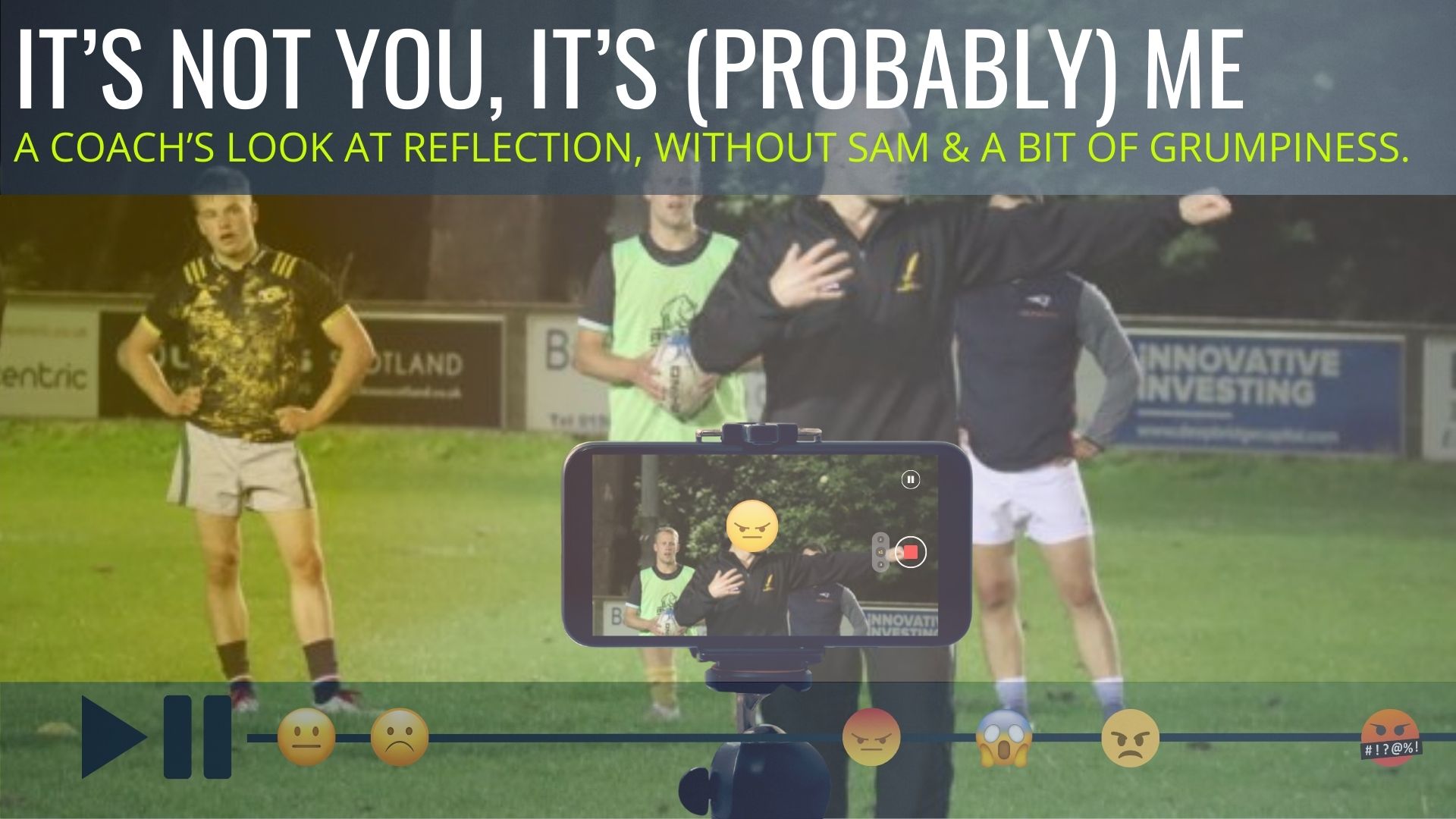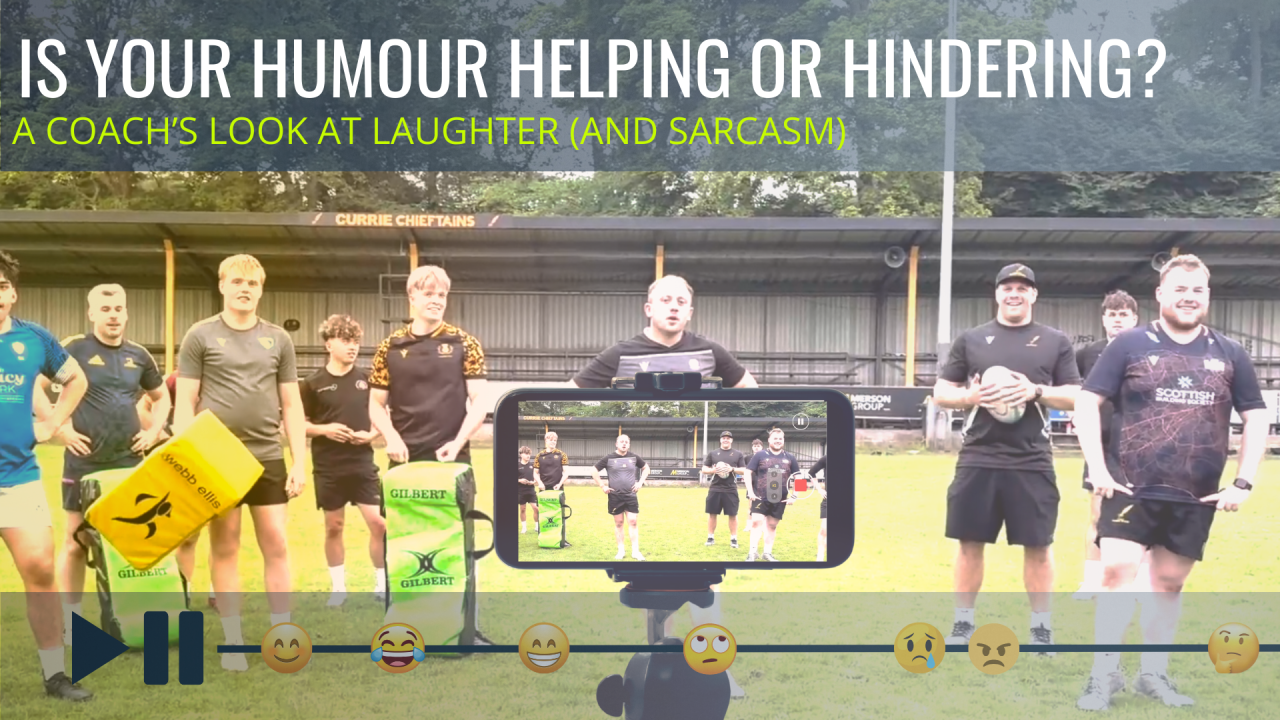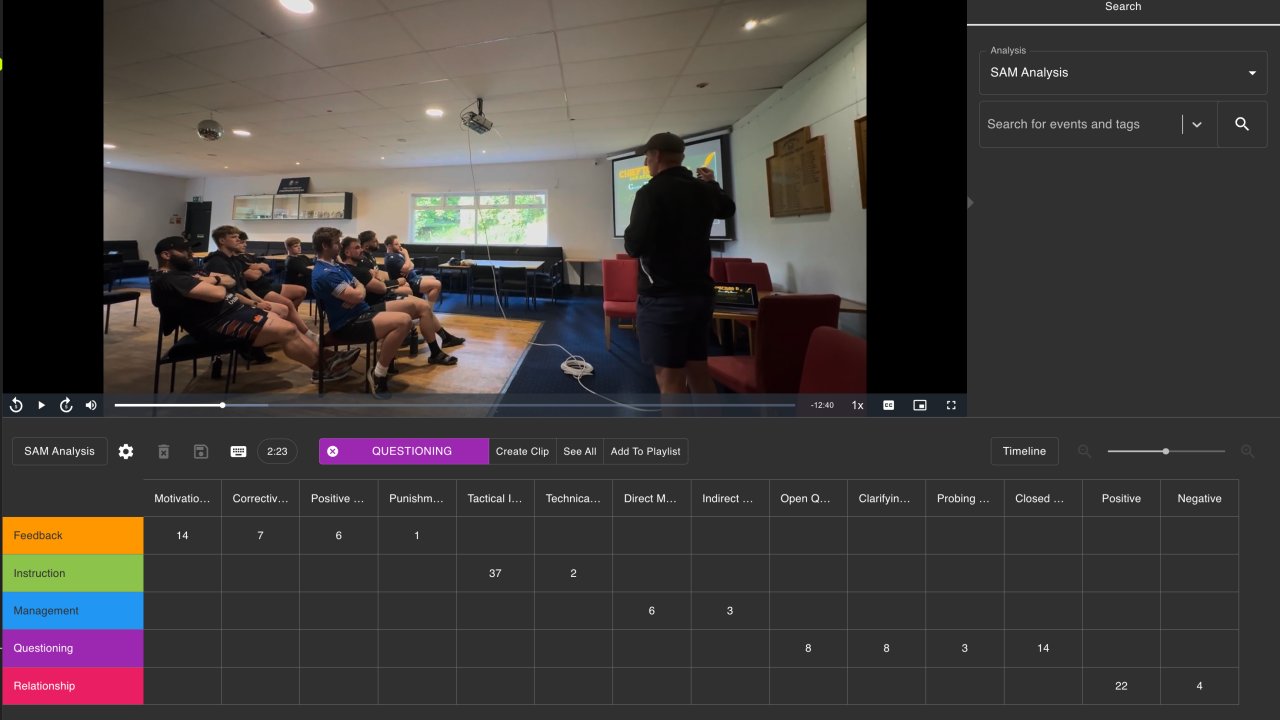It’s Not You, It’s (Probably) Me
A coach’s look at reflection without SAM and a bit of grumpiness.
On Tuesday night I coached without SAM for the first time in a long time. Not by choice. I’d left my chest-mount at the club, and it seems to have gone missing 😡!
Halfway through the session, I realised how much I now rely on it for reflection now. I kept thinking, “I’ll check that later” or “Maybe I didn’t explain that properly”; before remembering there would be no playback.
The Big Screen Analogy
For those who don’t coach, the best comparison is the big screen in a stadium. SAM is my replay screen. I don’t lean on it for everything, but when it’s missing, I notice.
On match days I’m the same. I scribble notes and try to give clear half-time feedback, but I’m always glad the video will let me check later. It’s become second nature.
I realise I have now started to think the same way about my coaching and the use of SAM afterwards.
When Sessions Don’t Land
This session carried extra weight. Pre-season had been big-squad training, but with our first game around the corner, I wanted a smaller group with higher quality so I could get into more detail.
In my head, it was the moment to shift gears, to hit the ground running, which is important with a tough home match ahead. In reality, it felt more like a jog.
I pushed standards, I challenged players, but I also let frustration seep in. Some of my sharper comments were deliberate, designed to put players under pressure. Others weren’t.
And I wasn’t the only one who noticed.
My friend and a highly regarded coach mentor, John Fletcher, who often drops in since his son Archie joined us, was watching. He knows me well enough to be honest, and afterwards he said: "You were pretty grumpy tonight" He felt the session had a negative vibe.
That hit hard, because the coach I want to be is the opposite of that.
The Reflection Gap
I’ve always been reflective and I generally sway towards being critical. As a player, I’d come off convinced I’d had a nightmare moment, only to watch the video and realise it wasn’t that bad. The video often provided me with objective relief.
Now, as a coach, SAM plays the same role. It gives me the truth of what happened, not just what I felt in the moment.
On Tuesday, without it, I was left guessing. I couldn’t be sure whether my tone really did dominate the session, whether my corrective feedback was constructive or just harsh, or whether my positives balanced things out.
And perhaps most importantly, I couldn’t see the positive performance moments I’d missed.
What I Didn’t See
Fletch told me there were plenty of positive moments, but I hadn’t acknowledged them. In my frustration, they’d slipped by.
That’s a big miss. Recognising effort, praising detail, reinforcing progress, those things build confidence and connection.
With SAM, I could have gone back, found those moments, and shared them with the players afterwards. That retrospective feedback would have been powerful: “I missed this at the time guys, but here it is now, and it was excellent.”
Not only would that have shown the players I value their work, it would have been a chance to admit where I could have done better as a coach. This is very powerful and pulls us closer together.
The Hard Questions

When I use SAM, I often start with the Relationship category. It shows me the ratio of positive to negative interactions. From there, I can dig deeper:
- Were the “negative” comments intentional or just frustration?
- Did they serve a purpose?
- Were there enough strong positives interactions to balance them out?
Then I look at Feedback:
- Was it mostly Corrective?
- Did I use enough Positive Reinforcement?
- Did I Motivate?
- Did I stray into punishment too often?
And Questioning:
- Did I ask Open Questions that gave players room to think?
- Did I Probe enough for the right answers or just stick to Instruction?
- Did I shut them down with clarifying or sarcastic remarks?
Owning the Session
On Tuesday, none of those questions had answers and that’s why I say: 'it’s not you, it’s (probably) me', as my experience tells me that it was probably me.
When players don’t get something, my instinct is to ask whether I’ve given them the clarity and space to succeed. SAM usually helps me answer that. Without it, I was left with nothing more than my own frustration and doubt.
I’ll address that with the players. I’ll explain that my high standards come from a place of belief in their ability, but that I didn’t always express it in the right way.
That honesty is important. And with SAM, I could have gone further, showing them what went right, not just what went wrong.
Why It Matters
Tuesday reminded me how vital reflection is. Not just for me as a coach, but for the connection I want with my players.
SAM helps me find balance. It lets me check whether frustration dominated, whether positives shone through, whether I gave space for players’ voices. It helps me catch the small moments that matter as much as the big ones. It also helps me feel better about bits in the session that I thought was terrible but turns out it wasn't that bad.
Looking Ahead
The good news is I get another shot tonight. And yes...I’ve ordered a new £15 chest harness, which Amazon delivered this morning. SAM will be back!
The players appreciate that I am trying to get better just like they are, they comment on me filming the sessions and if I say something sarcastic I often get a comment about SAM noticing that one.
We are an ambitious amateur team and I lean on the players a lot to commit to development, so I need to develop too and SAM helps me make sure that my session reflection is honest, balanced, and useful.
▶️ How I use SAM




.jpg)

